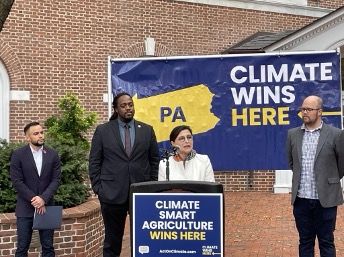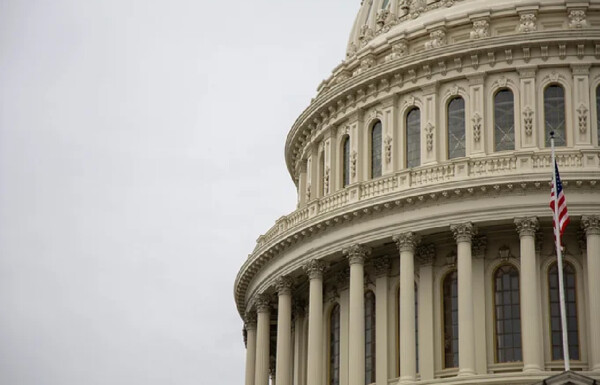Lancaster’s Agricultural Leaders Highlight Climate-Smart Farming Practices Made Possible by the Inflation Reduction Act

State Representatives and Local Officials Discuss Climate Benefits and Economic Opportunities Provided by Federal Funding
(LANCASTER, PA) – Today, State Rep. Ismail "Izzy" Smith-Wade-El convened with other local leaders and climate experts for a press conference spotlighting the transformative effects of the Inflation Reduction Act (IRA) on Lancaster County’s agricultural producers, including the unprecedented federal investments in Pennsylvania’s agricultural sector, which consists of over 57,000 farmers on 7.7 million acres of farmland, contributing $132.5 billion annually to the state’s economy.
Thanks to President Biden, Senator Bob Casey and other climate champions in Pennsylvania’s Congressional Delegation, Lancaster County agricultural producers and rural communities are beginning to harness resources vital for climate solutions, all while fortifying their economic foundations. The IRA earmarks an impressive $40 billion towards farms and rural areas across the country. Specifically, $19.5 billion is dedicated to strengthening agricultural conservation initiatives, and another $14 billion will help rural communities invest in renewable energy and transition to clean energy sources.
“The IRA’s investments are a testament to the federal government recognizing and bolstering the efforts of communities like Lancaster in empowering our farmers to adopt practices like cover cropping, agroforestry, and efficient irrigation systems,” stated Rep. Ismail "Izzy" Smith-Wade-El. “These Climate-SMART initiatives do not just combat soil erosion and improve water management; they are vital in ensuring the food security of our Lancaster residents amidst changing and often unpredictable climate conditions. We recognize the challenge, and the federal government’s support here is pivotal.”
Professor Sepi Yalda, Ph.D., Director of the Millersville University’s Center for Disaster Research and Education, commented, “Sustainable agriculture plays a pivotal role in mitigating the adverse effects of climate change on our food systems. We hear the word resiliency often in these discussions, and that is exactly what can ensure food security for all our communities. We can’t predict dramatic climate events, but we can be ready for them. Robust strategic planning and federal investments in climate smart agriculture are key.”
"The beauty of Climate-SMART is its direct funneling of resources into our rural communities. It’s not just about acknowledging the challenges; we’re actively investing in and implementing regenerative agricultural practices, providing our farmers with the tools and support they need to reduce erosion and fuel consumption,” said Eric Sauder, Founder and Executive Director of RegenAll. “This federal initiative facilitates resource flow and ensures that climate solutions are holistic. It’s this kind of inclusive approach that makes Lancaster a potential model for the nation.”
In addition to touting the tangible benefits realized in the law, speakers urged federal leaders to not only reject efforts to scale back investments in climate – as some have suggested – but to make further investments.
A recording of the event is available HERE.



